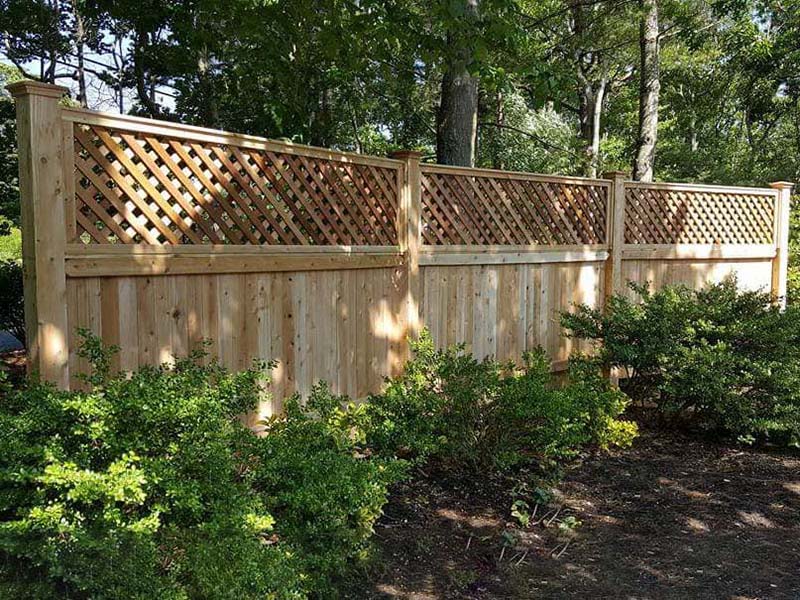Fall and winter months are the best time to replace a fence. Cooler weather makes installation easier, crews are more available, and landscaping stays intact while dormant. Planning your fence replacement in fall or winter also means your new fence will be ready before spring outdoor activities begin.
In this blog, Stafford Fence, your trusted Kingston, MA fence company, will explain why timing matters, what to expect from a fall or winter installation, and how planning ahead can save you time and money while ensuring your property is protected and ready for the seasons ahead.
Why Fall and Winter Are the Best Seasons
Benefits of Replacing Your Fence in Cooler Months
- Better contractor availability: Fall and winter are typically slower seasons, so projects are scheduled more quickly.
- Cost efficiency: You may avoid peak-season pricing.
- Minimal lawn damage: With softer soil in southern Massachusetts and dormant grass in colder areas, installation has less impact on landscaping.
- Ready for spring: A finished fence before the warm weather arrives lets you enjoy your yard or property without interruption.
Drawbacks to Keep in Mind
- Frozen ground: In New England, especially, extreme cold can slow digging or concrete setting.
- Material lead times: Custom or specialty orders may take longer in the off-season.
How to Plan Your Fence Replacement
- Inspect your current fence: Look for rotting posts, sagging sections, or damage.
- Choose your material: Vinyl, wood, ornamental steel, aluminum, glass, chain link, and specialty fences each offer different benefits.
- Check local guidelines: Many towns don’t require permits for fences under 6 feet, but taller structures may need approval.
- Book early: Even in the off-season, scheduling ahead secures your spot.
- Prepare your yard: Clear furniture, mark utilities (your Massachusetts residential fence professional can assist by calling DigSafe), and confirm property lines.
Fence Material Comparison
| Material | Average Lifespan | Maintenance | Best For |
| Aluminum | 20-50 years | Low | Rust resistance, versatile |
| Vinyl | 20-30 years | Low | Privacy, durability |
| Wood | 10-15 years | High | Natural look, custom styles |
| Chain Link | 15-20 years | Low | Commercial, security |
| Ornamental Steel | 30+ years | Low | High-end, decorative |
| Glass | 15-30 years | Low | Modern look, pool enclosures |
| Specialty | 20-30+ | Low-Moderate | Custom, unique designs |
Other Factors That Affect Timing
While fall and winter are generally the best seasons, the ideal timing for a Massachusetts residential fence replacement can also depend on your location, soil conditions, and the type of fence. For example, rocky or frozen soil in Northern Massachusetts may slow installation, while softer soil in southern areas is easier to work with year-round.
Certain materials, such as wood, are more sensitive to moisture and temperature fluctuations, whereas vinyl, aluminum, glass, and specialty fences can often be installed in cooler months without issue. Planning around your personal schedule and project needs ensures the fence is ready when you want to enjoy your property.
Plan Your Fence Replacement with Stafford Fence
So, what is the best time to replace a fence? Fall and winter give you the best combination of cost savings, contractor availability, and minimal yard disruption.
If you’re in Southeastern Massachusetts and need a trusted, insured Kingston, MA fence company to handle your project, Stafford Fence is here to help. Call us at (508) 927-4998 or contact us online to schedule your consultation today!



